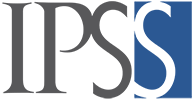In 1987, a group of four psychoanalysts—Drs. George Atwood, James Fosshage, Frank Lachmann, and Robert Stolorow—set out together to lay the foundation for a new psychoanalytic institute. Each member of this group inhabited a similar subjective wish to found an analytic institute that would not only avoid rigid and doctrinaire aspects of traditional training, but would also do away with antiquated attitudes and conventions which appeared to be perpetuated for the benefit of the institute rather than aligned with the needs or educational objectives of the candidate. Three of these men had been trained at the Postgraduate Center for Mental Health in NYC, and all had taught and supervised at various venues. Sharing similar sensibilities, Drs. Beatrice Beebe and Bernard Brandchaft, also joined this founding faculty team of renegade psychoanalytic scholars. They all agreed upon the name “Institute for the Psychoanalytic Study of Subjectivity” (IPSS) for a new and “cutting edge” learning institution.
Although each member of the IPSS founding faculty had been influenced by self psychology, and each had contributed to self psychology’s ongoing evolution and intersubjective turn, the plan for IPSS was to teach a well rounded curriculum that included all psychoanalytic theories. In our first year, Steve Mitchell taught our new students the object relations course, and Martin Bergmann taught our Freud course. Innovative courses taught by our founding faculty were added to the curriculum—including Infant Research, Comparative Intersubjectivity, and Psychotic States. In order to expose the new candidate of IPSS to the widest range of psychoanalytic contributions, the founding faculty also instituted a course entitled “The Field of Psychoanalysis” for which students would select five notable contributors to psychoanalysis to have an immersive, full-day experience. Past notable teachers include: Lew Aron, Howard Bacal, Jody Davies, Arnold Goldberg, Adrienne Harris, Joseph Lichtenberg, Anna and Paul Ornstein, Karlen Lyons-Ruth, Mal Slavin, Dan Stern, Donnel Stern, and Robert Wallerstein.
During its inception, the founding faculty of IPSS also asked important questions to create a learning environment that would reflect a “candidate centered” sensibility. Should candidates be required to go into analysis or supervision with a member of our institute exclusively? IPSS candidates have the freedom to choose any analyst or supervisor they wish to work with provided that person has been a graduate of a psychoanalytic institute for at least five years. Do our candidates feel heard, and what are their needs for an optimal learning experience? Our founding faculty implemented “Town Meetings” where the IPSS community comes together to exchange ideas, questions, concerns, and plans for the seasons to come.
Members of the first two IPSS classes were Shelley Doctors, Jackie Gotthold, Peter Kaufmann, Sandra Kiersky, Steven Knoblauch, Peter Lessem, Donna Orange, Dorienne Sorter, and Judith Rustin, all of whom have led the long line of IPSS graduates whose ideas, published papers, and books are presented at national and international psychoanalytic meetings. Many have also taken on the mantel as instructors in many different venues, and as leaders in the psychoanalytic community at large.
Where are we headed in the future? Our regular Explorations series presents original papers, by faculty or recent graduates, to share with the larger community. In this dialogic spirit, in 2013, we co-sponsored with The Sandor Ferenczi Center at the New School, “Truth and Consequences in Psychoanalytic Treatment: The Analyst’s Intimate Experience and the Patient’s Mind,” papers by Jill Gentile, Ph.D., and Jonathan H. Slavin, Ph.D., and discussions by Jody Davies, Ph.D., and Shelley Doctors, Ph.D. This year, “Discipline and Spontaneity in Contemporary Psychoanalysis: Different Perspectives,” a jointly conceived conference with Manhattan Institute for Psychoanalysis, will be held at the Ferenczi Center to engage discourse about differing theoretical positions.
Several years ago, the candidates and faculty of IPSS were invited by the Vienna Circle for Self Psychology for a joint meeting in Vienna, and then two years later, in Rome. In 2010, twenty-four members of the Vienna Circle came to New York for a joint meeting with IPSS. We reciprocated by traveling to Vienna again for another joint meeting in 2013. IPSS has also partnered with Institutes in Rome, Canada, and LA to co-sponsor psychoanalytic conferences in Sicily, Italy. In 2012-13 we provided our first one-year online training for psychologists in South Africa.
Today, IPPS continues to pursue its objectives as an autonomous and freethinking Institute. Our overarching goal has always been to promote a system of pluralistic thinking, collaboration, and an open conversation with all theoretical perspectives. We welcome continued growth and collaboration, and hope you will join the dialogue!

